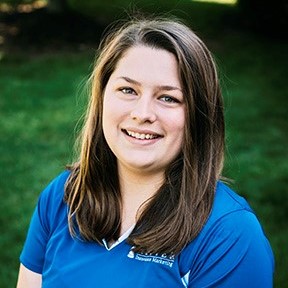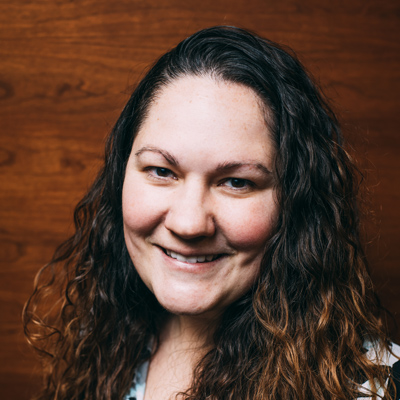One component that can make or break growing your insurance business is people. That’s why the hiring process is crucial when building an independent insurance agency.
By screening candidates and making sure you recruit the right insurance agents, downlines, and agency staff, you can save thousands of dollars instead of spending time and money on ineffective employees.
Paige Engle, formerly of Ritter’s Marketing Department, interviewed Samantha Galeano, Ritter’s Director of Human Resources. Here’s our human resources professional’s perspective on interview questions and responses, and the process for bringing in employees that are going to stick it out for the long haul.
Give me a general overview of your interview process, beginning to end.
Well, I think the very first part of the interview process is actually figuring out a job description. It can be as simple as some bullet points describing what this person needs to accomplish in that job role, and whether it’s a full-time position or a part-time position.
Then we work on a job ad, which means putting those details into a format that entices people to want to work here. Once we start getting people interested in a job, then we review their credentials. Typically, that comes through as a résumé, but it might also include a portfolio. Reviewing a résumé is really about taking the information that you’re given and matching it with the job description that you created.
Once we start getting people interested in a job, then we start reviewing their credentials. Typically, that comes through as a résumé, but it might also include a portfolio. A résumé review is about seeing if the information on it matches the job description.
Once we have some people that look good on paper, we meet with them for a face-to-face interview. If we need to narrow down the candidate pool, we’ll do phone interviews first, but most of the time I like to jump to the face-to-face interview. That’s when you get to know a little bit more about their presence, both physically and verbally, and their communication style. You can really start to dig into their past experiences too.
If I have more than one really great candidate after the first interviews, then I’ll jump to a round of second interviews. During the second interview, it may be helpful to get feedback from team members that are going to be working with your prospects, especially if someone is going to be training them, working in close proximity with them, or if you have a small team.
Once we have a candidate that is a good fit for the position, we go through with a job offer. It’s a formal, in-writing version of the job description that also includes compensation, any benefits that come with the position, time off, start date, and all those kinds of details.
Once we have a signed job offer, we then focus on the training process to make sure that we’re setting the right expectations, teaching them how to do their job, and preparing them to be successful in the position we want them fill.
What’s the first thing you look for in a résumé review? What do you tend to ignore?
Part of it depends on the position. Ultimately, I want to see what they’ve done in past jobs and how it matches up with what I’m looking for. So, whether that’s a job skill or certification, I’m going to look for those key words from the job description to tie into the résumé.
Another important thing is tenure in positions. Things have changed a lot over the past decade, and you see a lot more job hopping. If it seems like they’re a repeat offender, such as staying with a company for a year or two, over the course of many positions, that’s a red flag for me.
Other than that, it depends on the position. Look at all the information you’re given to make sure you want to bring in that person for an interview.
How do you know which interview questions to ask? How do you decide which ones are worthwhile?
The employment relationship is best when it’s mutually beneficial. You want to make sure that you’re asking the right interview questions and you’re giving the potential for that employee to ask the right questions too.
I usually target to have 30 minutes to an hour to meet with someone, which means picking enough questions to fit that time. You don’t want too many, or else it’s bombarding and just repetitive.
Make sure that you’re asking the right interview questions and you’re giving the potential for that employee to ask the right questions too.
Try to make it more of a conversation as opposed to a rapid-fire interrogation. Pick some questions that span the whole employee life cycle. Getting to know about their past experience and background is valuable, but so is getting to know what makes them tick as an employee. Find out what’s important to them in a job, in a boss, in work culture.
It all comes back to that job description. You need to focus on what they’re going to be doing, and using open-ended questions to really target what they’ve done before. Past experience and behavior are most indicative of how they’re going to be on the job.
What would you say are the top two to three most insightful questions you can ask a candidate?
One question I really like to ask when screening candidates is, “What are people’s greatest misperceptions about you when they first meet you?” I like this question for a couple of reasons:
- It’s not a common question, so most people don’t have a canned answer for it.
- This is the first time you’re meeting them, so if this person seems a little snobby or introverted or arrogant, it may be something they’ve heard in the past and have reflected on and are trying to fix.
Asking this [question] gives them the chance to explain how other people have reacted and how it’s improved over time. Having that background can help clear up some first impressions you’re getting.
Another one that I routinely ask is, “Out of all your previous positions, what are the roles and responsibilities that you really loved doing?”
And then, on the flip side, “What were the roles and responsibilities that you really don’t enjoy doing?”
Knowing the types of things that drive someone to succeed is important.
Each environment is different. Each job is different. However, knowing the types of things that drive someone to succeed is important. Knowing what someone is passionate about, and knowing the things that grate on people, really can help you make a decision.
I have plenty of people say, “I hate how overwhelming it gets during the peak season,” or, “It’s really frustrating when you have a lot of interruptions throughout the day.” Some of those things are really common for certain Ritter employees, and if that’s something that drives them up a wall, it’s probably not the best fit.
What sort of things do you look for in interview responses?
I don’t want a one-word answer. If I have to pull it out of you, you may not be the greatest communicator. On the other hand, I don’t want you to gab and not answer the question at hand.
A lot of people will skirt around the question or not be direct with their answers. All of those things tell what kind of communicator they are — their communication style. You don’t want either of those extremes.
You want someone is who genuine with their answers.
Another thing is to make sure they answer the question, especially for open-ended questions. Sometimes when I look back on my interview notes, I realize that they didn’t actually answer my question. It may be a nice piece of information, but clearly there was some disconnect. Sometimes it’s as simple as a follow-up question, but if you’re asking a lot of those, there may be an issue there.
There are a lot of these canned answers for traditional questions too. A good interviewee will be prepared with those types of answers, and they’re not bad questions to ask. I ask them all the time.
I don’t want a person who isn’t genuine with their answers. I don’t want someone who just has the canned blurb that they use every single time. I want to see more.
And if you get some of those kinds of answers, ask how, ask why, ask them to give you an example. Those types of follow-up questions help to get away from standard answers like that.
How do you read people when you’re conducting an interview? What do you look for in their body language?
You want someone who makes eye contact and is engaged in your conversation. It’s really easy to tell when someone isn’t interested in what you’re saying or isn’t really giving it their all. Looking for someone who shows interest and is making their best effort is important.
You want someone who makes eye contact and is engaged in your conversation.
Of course, you can say, “If their arms are crossed, they’re cut off from the conversation,” but the interviewee is a thousand times more nervous than you. So if you notice that they’re really uneasy or that it took them awhile to warm up in the interview, that’s 100 percent normal. And that’s when I would bring that person in for a second interview.
It takes people a little bit to warm up when they’re anxious. Of course they’re nervous. They want this job, otherwise they wouldn’t be here. So, sometimes, you have to cut them some slack.
There’s so much we can learn from that. If you had to summarize your top three tips for conducting a really great interview, what would they be?
My three tips for interviewing would be:
- Screen the right candidates. Even if they look fantastic on paper, they need to fill the job role. Otherwise, you’re wasting everyone’s time. So, that’s really important.
- Establish comfort. I really like to be comfortable in my interviews, and I want the person to feel comfortable too. Some people are the opposite. They want to make people wait, they want to make them nervous, they want to show them that they’re top dog. That’s just not my style. Ultimately, I want to show you our work culture and make sure that you’re a match for it. So, whatever your style of interview is, try to make it correlate with your culture and your environment.
- Follow up. Just because a candidate wasn’t a good match for that position doesn’t mean they won’t be an awesome candidate for something else. If you leave a good lasting impression with that person, they may refer candidates or become a boomerang candidate and come knocking on our door for a job they’re awesome for. It’s a two-way street.
Believe me, I can get bombarded with interview candidates. But, I try to reach out to everyone we give interviews to and let them know the status of the position in a follow-up communication. We really want to make that whole process enjoyable. Job searching can be daunting, so if someone can leave your office and know they want to work for you even if they don’t get that particular position, I’d say that’s a win.
We hope that these interviewing tips come in handy as you’re hiring insurance agency staff or recruiting downline agents! Screening job candidates can save you valuable time and money. And, when you hire the right people, it can make your business even more profitable!
Looking for advice more specific to the insurance industry? Register with Ritter to access all our tools and resources, including our agency specialists, and download our guide to developing an insurance agency!








Not affiliated with or endorsed by Medicare or any government agency.
Share Post